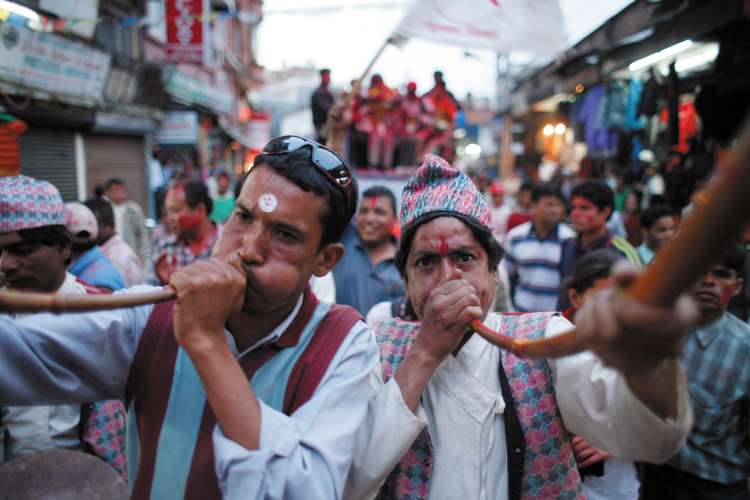Nepal's Maoists head for election victory

Your support helps us to tell the story
From reproductive rights to climate change to Big Tech, The Independent is on the ground when the story is developing. Whether it's investigating the financials of Elon Musk's pro-Trump PAC or producing our latest documentary, 'The A Word', which shines a light on the American women fighting for reproductive rights, we know how important it is to parse out the facts from the messaging.
At such a critical moment in US history, we need reporters on the ground. Your donation allows us to keep sending journalists to speak to both sides of the story.
The Independent is trusted by Americans across the entire political spectrum. And unlike many other quality news outlets, we choose not to lock Americans out of our reporting and analysis with paywalls. We believe quality journalism should be available to everyone, paid for by those who can afford it.
Your support makes all the difference.Less than two years after they ended their armed struggle and entered mainstream politics, Nepal's Maoists are heading towards a shock victory in the country's election.
Results from last week's vote for a national assembly give the former rebels 61 of the 108 seats counted so far. A total of 601 seats are being fought, with complete results not expected for at least another week.
The Maoists were expected to be beaten into third place by their two main rivals, the Communist UML and the Nepali Congress, but these parties have so far secured only 16 seats each.
"This victory is a command by the Nepali people to establish lasting peace," Prachanda, the Maoists' leader, said after securing his constituency seat over the weekend. "We are fully committed to the peace process and multiparty democracy and to rebuild this country."
Nepalis were voting on Thursday for representatives for an assembly that will draw up a new constitution – drawing a line under the a 10-year war that claimed 13,000 deaths. All the major parties say they are committed to abolishing Nepal's 239-year-old monarchy and declaring the country a republic.
The current king, Gyanendra, assumed the throne after the 2001 palace massacre in which eight members of the royal family were murdered by the crown prince, who then turned one of his weapons on himself.
Markedly less popular than his murdered predecessor and brother Birendra, King Gyanendra plunged the monarchy's popularity to a new low in 2005 when he imposed absolute rule for two years.
Join our commenting forum
Join thought-provoking conversations, follow other Independent readers and see their replies
0Comments